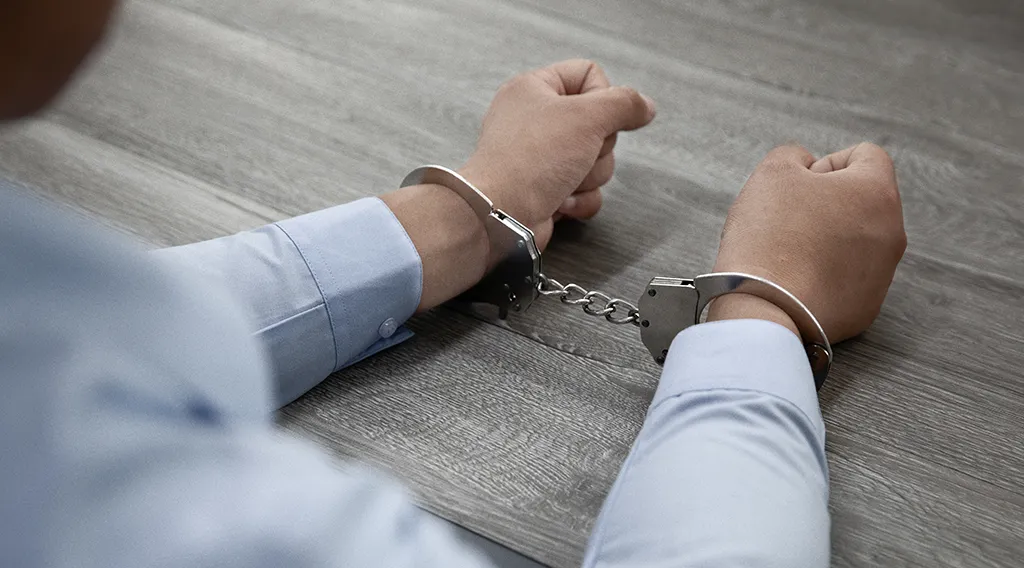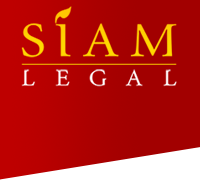Arrested in Thailand: What to do?

Being arrested in Thailand puts you in a legal system that may function differently from what you’re familiar with. Before speaking with authorities or making any decisions, you need to know your rights and understand the steps you must take to protect yourself and avoid serious legal consequences.
What to Do if You Are Arrested in Thailand
If you are arrested in Thailand, your actions and decisions from the outset can have a direct impact on the outcome of your case. You may put yourself at greater risk by reacting impulsively, signing documents they do not fully understand, or failing to seek proper legal representation. To avoid escalating the situation during an arrest, follow these key guidelines:
- Maintain Composure and Speak Respectfully: Confrontational behavior (such as resisting arrest) or emotional outbursts can escalate the situation and lead to additional complications.
- Comply with Standard Procedures: Cooperate with basic identification steps, but refrain from answering questions or signing documents without legal advice. It is crucial that you avoid interfering with the legal process, such as attempting to bribe the Thai officials, as this can lead to more severe legal consequences.
- Secure Legal Counsel: Clearly request a lawyer before any questioning. You are not required to explain or defend yourself without proper representation. Although the Thai court may appoint a public defender for you, these lawyers are often inexperienced and may not speak your language, which can limit effective communication and reduce your chances of a favorable outcome.
- Notify Your Embassy or Consulate: While your country’s embassy or consulate in Thailand cannot intervene in legal proceedings, they can assist with notifying your family and providing a list of local attorneys.
Upon arrest, you may be detained at the nearest police station for up to 48 hours without a formal criminal case. Depending on the severity of the offense, the Thai court may issue one or more detention orders, each extending the detention period by up to 7 days, with a maximum cumulative period of 84 days.
What rights do foreigners have in Thailand if arrested?
Thailand grants legal rights to all individuals, regardless of nationality. However, foreign nationals often face added challenges due to language barriers and limited understanding of Thai legal procedures. When dealing with an arrest in Thailand, it is important to know which rights apply to you and how to exercise them effectively:
- Right to Remain Silent: You are not obligated to answer questions from authorities or sign any documents before consulting with legal counsel. Exercising this right allows your lawyer to review the circumstances of your case, as well as prevent you from making statements or signing anything that could later be used against you in court.
- Right to Be Informed of Charges: Thai authorities are obligated to inform you of any charges brought against you and must ensure that you understand them clearly to prevent misunderstandings that could affect your defense. A bilingual lawyer in Thailand can assist by translating legal documents and interpreting any communication in Thai to help you fully understand the charges.
- Right to Legal Counsel: If you do not have a lawyer, the court will appoint one on your behalf if the criminal charge carries a maximum penalty of 10 years or more, but keep in mind that court-appointed attorneys may lack experience with cases involving foreign nationals and often cannot communicate in your language. You have the right to contact and retain a qualified Thai trial lawyer who can represent you in court and provide proper legal guidance throughout the proceedings.
- Right to Bail: If you have been detained, you have the right to apply for bail to push for release while you await a resolution, but whether bail is granted is at the discretion of the judge reviewing your petition. However, you can improve your chances of being granted bail by retaining an experienced lawyer to draft a convincing appeal to the judge.
- Right to Defend Yourself in Court: Although it is not recommended, you are legally allowed to represent yourself in court and respond directly to the charges with any evidence you can gather to support your case. With that said, all court proceedings are conducted in the Thai language, so if you are not fluent in the language, you may experience difficulty in managing your defense and avoiding misunderstandings.
- Right to Notify Your Embassy: As a foreign national, you have the right to contact your country’s embassy or consulate in Thailand. They can notify your family, provide guidance on how to proceed with an arrest, and even recommend local attorneys for legal representation.
Hire a Criminal Defense Lawyer in Thailand
If you are arrested or facing potential criminal charges in Thailand, it is advised that you retain the services of a criminal defense lawyer in Thailand as soon as possible.
Thailand’s legal system moves quickly, and once formal charges are filed, it becomes far more difficult to correct procedural missteps or reverse unfavorable developments without legal representation. Delays in securing a lawyer can significantly reduce your chances of reaching a fair outcome.
Siam Legal International is a full-service law firm and visa consultancy in Thailand with over 20 years of experience in helping both local and foreign clients defend themselves against criminal charges. With in-depth knowledge of Thai criminal and civil law, our bilingual litigation team is well equipped to address the unique nuances of your case and secure the best possible outcome. Our services include:
- Protecting Your Legal Rights: Ensuring that Thai authorities treat you fairly and uphold your rights throughout the legal process.
- Court Representation: Advocating on your behalf during court proceedings to present a clear and effective defense.
- Evidence Collection and Review: Gathering and evaluating relevant evidence to support your case and strengthen your legal position.
- Bail Assessment and Petition Drafting: Reviewing your eligibility for bail and preparing a persuasive petition for submission to the court.
- Document Review and Verification: Examining all required documents to confirm their accuracy, authenticity, and safety before signing.
- Official Communication: Managing all communication with Thai authorities to prevent misunderstandings or misinterpretations.
- Appeals to Higher Courts: Preparing and filing a well-structured appeal in the event of an unfavorable outcome.
If you are facing criminal charges in Thailand and wish to avoid imprisonment while preserving your record and reputation, do not hesitate to contact Siam Legal to book a consultation now!
Frequently Asked Questions About Being Arrested in Thailand
Can I get released on bail in Thailand?
Yes, it is possible to be released on bail in Thailand while awaiting trial, but it’s not guaranteed and depends on the specifics of the case, like the severity of the crime, the strength of the evidence, and your circumstances when requesting bail.
Can I leave Thailand while my criminal case is ongoing?
Once you are formally charged, Thai immigration authorities will record the charge in your file, which generally prevents you from departing the country until your case is resolved or you obtain court permission to leave.
Will I be deported immediately after an arrest in Thailand?
Not necessarily. Deportation does not automatically follow an arrest in Thailand and typically occurs only after a court has issued a judgment or sentence. Whether or not you will be deported depends on the nature of the offense and the final decision issued by the Thai court.
Can I refuse to answer police questions after being arrested in Thailand?
Yes, you have the right to remain silent and are not obligated to answer any questions from the police without legal representation. It is strongly advised that you wait until you have consulted with a qualified lawyer, as anything you say may be used against you during the investigation or in court.
Can I hire a lawyer from my home country to represent me in Thailand?
No, only lawyers licensed to practice in Thailand are permitted to represent clients in Thai courts. If you’re struggling to find a lawyer to represent you, your country’s embassy or consulate in Thailand may be able to assist you in finding a Thai lawyer who speaks your language and understands your legal needs.
Category: Litigation
About the Author (Author Profile)
Siam Legal is an international law firm with experienced lawyers, attorneys, and solicitors both in Thailand law and international law. This Thailand law firm offers comprehensive legal services in Thailand to both local and foreign clients for Litigation such as civil & criminal cases, labor disputes, commercial cases, divorce, adoption, extradition, fraud, and drug cases. Other legal expertise of the law firm varied in cases involving corporate law such as company registration & Thailand BOI, family law, property law, and private investigation.











